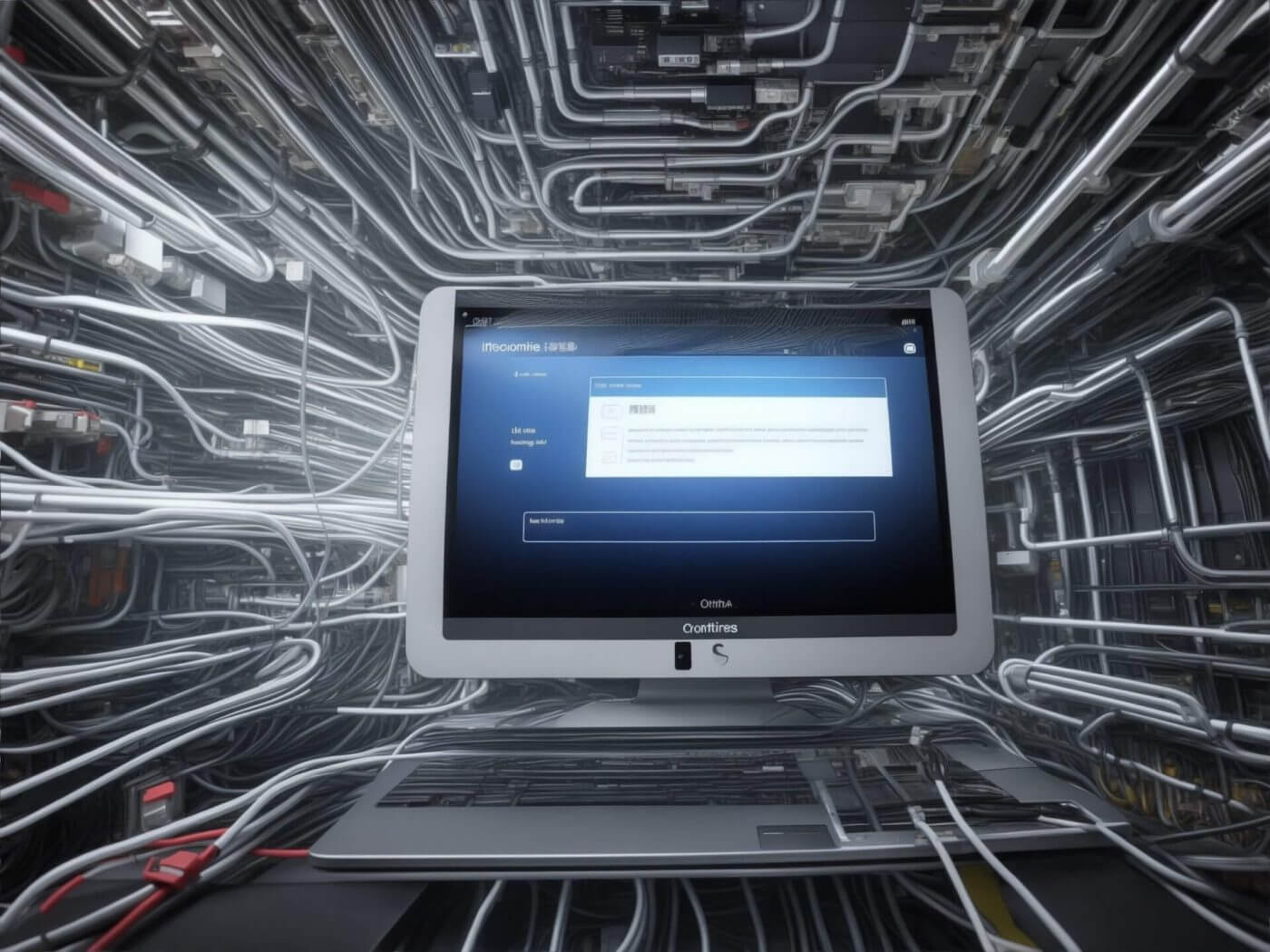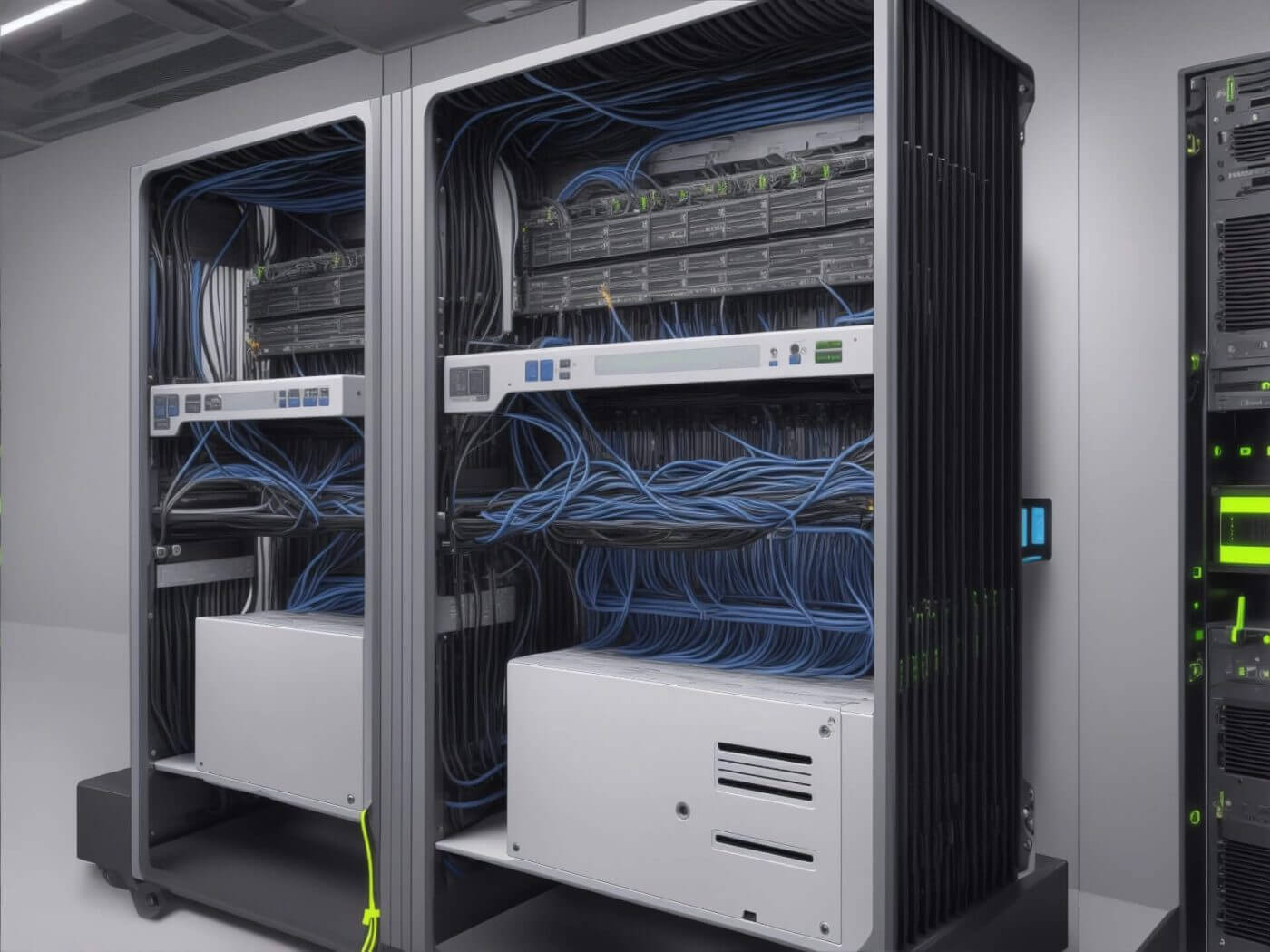As the business landscape continues to evolve and technology advances at a rapid pace, it is crucial for businesses to stay updated with the latest tech trends. The year 2023 promises to bring about some groundbreaking changes that will significantly impact how companies operate and engage with their customers.
A brief overview of the importance of staying updated with technology trends in business.
Embracing technology trends can give businesses a competitive advantage and open up new opportunities for growth. Here are the top 10 tech trends that will change your business in 2023:
- Artificial Intelligence (AI) and Machine Learning (ML): AI and ML will revolutionize various aspects of business operations, ranging from customer service to data analysis.
- Internet of Things (IoT): IoT enables interconnected devices and provides a wealth of data that businesses can leverage to improve efficiency and develop new products and services.
- 5G Connectivity: The ultra-fast and low-latency capabilities of 5G will pave the way for advanced applications, such as autonomous vehicles and remote collaboration.
- Blockchain: Blockchain technology offers enhanced security and transparency, making it ideal for industries like finance, supply chain management and healthcare.
- Augmented Reality (AR) and Virtual Reality (VR): AR and VR will transform the customer experience by enabling immersive interactions and virtual product try-ons.
- Cybersecurity: With the growing prevalence of cyber threats, businesses need to invest in robust cybersecurity measures to protect their sensitive data and maintain trust with customers.
- Edge Computing: Edge computing brings data processing closer to the source, reducing latency and enabling real-time decision-making.
- Automation and Robotics: Automation and robotics will streamline repetitive tasks, enhance productivity and unlock new levels of efficiency in various industries.
- S3 Storage: With the increasing amount of data generated by businesses, S3 (Simple Storage Service) will play a crucial role in providing scalable and secure cloud storage solutions.
Artificial Intelligence (AI)

In today’s fast-paced technological landscape, it’s crucial for businesses to stay ahead of the curve and embrace the latest tech trends. One trend that will have a significant impact on businesses in 2023 is Artificial Intelligence (AI).
The role of AI in transforming business processes and decision-making
AI is revolutionizing the way businesses operate and make decisions. Here are some key ways AI is transforming business processes:
- Automating tasks:AI can automate repetitive and time-consuming tasks, freeing up valuable time for employees to focus on more strategic activities. This leads to increased productivity and efficiency.
- Enhancing customer experience:AI-powered chatbots and virtual assistants can provide instant and personalized customer support, improving customer satisfaction and loyalty.
- Improving decision-making:AI can analyze large volumes of data and provide valuable insights and predictions, enabling businesses to make more informed and data-driven decisions.
- Optimizing operations:AI algorithms can optimize supply chain management, inventory forecasting and logistics, leading to cost savings and improved operational efficiency.
- Personalizing marketing:AI can analyze customer data and behavior to deliver personalized marketing campaigns, increasing customer engagement and conversion rates.
In conclusion, embracing AI technologies in your business can provide significant advantages and keep you ahead of the competition. It’s essential to stay updated with the latest AI trends and explore opportunities for its implementation in your business processes.
Internet of Things (IoT)

How IoT is revolutionizing data collection, connectivity and automation in business
In 2023, businesses will continue to experience the transformative power of the Internet of Things (IoT). IoT refers to the network of physical devices, vehicles, appliances and other objects embedded with sensors and software that enable them to connect and exchange data. Here are the top 10 tech trends that will change your business in 2023:
- Data Collection:IoT devices collect vast amounts of data in real-time, providing businesses with valuable insights for informed decision-making.
- Connectivity:IoT enables seamless connectivity between devices, facilitating better communication and collaboration among teams and systems.
- Automation:IoT technology automates routine tasks, improving efficiency and productivity while reducing human error.
- Enhanced Customer Experience:IoT enables personalized experiences by gathering and analyzing customer data, leading to improved products and services.
- Supply Chain Optimization: IoT devices can track and monitor inventory, automate processes and provide real-time data on supply chain operations.
- Predictive Maintenance:By analyzing sensor data, IoT can predict maintenance needs, reducing downtime and optimizing equipment performance.
- Energy Efficiency:IoT devices can monitor and control energy consumption, leading to cost savings and sustainable practices.
- Improved Security:IoT security measures are evolving, ensuring the protection of data and devices against cyber threats.
- Smart Cities: IoT technology is transforming cities, enabling smart infrastructure, traffic management and efficient public services.
- Healthcare Innovation: IoT devices are revolutionizing healthcare, enabling remote patient monitoring, personalized medicine and improved healthcare delivery.
With the continuous advancements in IoT, businesses need to embrace and leverage this technology to stay competitive and reap its countless benefits.
5G Technology

The potential impact of high-speed 5G networks on business operations and communication
In the rapidly advancing world of technology, staying ahead of the curve is essential for any business looking to thrive. One of the most significant tech trends set to revolutionize business operations and communication in 2023 is the widespread adoption of 5G technology.
5G networks boast unimaginable speed and reliability, offering businesses the potential for faster downloads, seamless connectivity and enhanced productivity. With 5G, companies can experience near-instantaneous data transfer, enabling real-time collaboration, remote work and improved responsiveness.
The impact of 5G on various industries is immense. For example, in manufacturing, it can facilitate the implementation of smart factories and IoT devices, enabling businesses to enhance production efficiency and reduce costs. In the healthcare sector, 5G can enable remote patient monitoring and telemedicine, transforming the way medical services are delivered.
Furthermore, 5G technology opens doors to innovative applications such as augmented reality (AR), virtual reality (VR) and autonomous vehicles, driving new opportunities for businesses to connect with consumers and deliver immersive experiences.
In conclusion, the advent of high-speed 5G networks will undoubtedly reshape the business landscape in 2023 and beyond. Embracing this technology will empower businesses to operate more efficiently, communicate seamlessly and unlock unprecedented opportunities for growth and innovation.
Blockchain Technology

Exploring the applications of blockchain in improving transparency, security and efficiency in business
Blockchain technology is revolutionizing the way businesses operate and its impact is set to continue growing in 2023. As a savvy business owner or entrepreneur, it’s essential to keep up with the latest trends that will shape the future of your industry.
Blockchain provides a decentralized and transparent system that enhances security and efficiency in various business processes. Here are some key applications to watch out for:
- Supply Chain Management: Blockchain enables businesses to track and verify the movement of goods and materials across the supply chain. This ensures transparency, reduces fraud and enhances trust.
- Smart Contracts: Smart contracts eliminate the need for intermediaries in agreements, reducing costs and increasing efficiency. These self-executing contracts are based on blockchain technology and provide a secure and automated way to enforce contracts.
- Digital Identity Management: Blockchain offers a secure and decentralized solution for managing digital identities. This enhances privacy, reduces the risk of identity theft and provides individuals with more control over their personal information.
- Payment Systems: Blockchain-based payment systems provide fast, secure and cost-effective transactions across borders. These systems eliminate the need for intermediaries, reducing fees and increasing efficiency.
- Data Security: Blockchain technology provides robust security measures to protect sensitive data from unauthorized access or alteration. This is particularly relevant in industries such as healthcare and finance, where data privacy is crucial.
By embracing blockchain technology and its applications, businesses can gain a competitive edge, improve customer trust and streamline their operations. It’s essential to stay informed about these tech trends to stay ahead in an ever-evolving business landscape.
Augmented Reality (AR) and Virtual Reality (VR)

Advancements in technology continue to shape the way businesses operate and one of the top trends expected to impact the business landscape in 2023 is the adoption of Augmented Reality (AR) and Virtual Reality (VR). These immersive technologies have the potential to revolutionize customer experiences and training programs.
The use of AR and VR in enhancing customer experiences and training programs in business
- Enhanced customer experiences: AR and VR can provide customers with interactive and engaging experiences. For example, AR can allow customers to virtually try on clothes or visualize furniture in their homes before making a purchase. VR can create virtual showrooms or provide virtual tours, allowing customers to explore products or services in a more immersive way.
- Improved training programs: AR and VR can transform training programs by creating realistic simulations and scenarios. This can be particularly beneficial in industries such as healthcare, construction and manufacturing, where hands-on experience is crucial. Employees can practice complex tasks and learn in a safe, virtual environment.
These trends are set to redefine the way businesses interact with their customers and train their employees. By embracing AR and VR, businesses can stay ahead of the competition and provide innovative solutions that meet the evolving needs and expectations of their stakeholders.
Cybersecurity and Data Privacy

The growing importance of protecting sensitive data and implementing robust cybersecurity measures
In an increasingly digital world, cybersecurity and data privacy are becoming more crucial than ever before. With the rise in online threats, businesses need to prioritize protecting their sensitive data and implementing robust cybersecurity measures.
Here are the key trends that will shape cybersecurity and data privacy in 2023:
- Artificial intelligence in cybersecurity: AI-powered systems can analyze vast amounts of data to detect and respond to threats in real-time, enhancing the effectiveness of cybersecurity measures.
- Zero-trust security model: The traditional perimeter-based security approach is no longer sufficient. The zero-trust model assumes that all users and devices are potential threats, requiring continuous authentication and verification.
- Cloud security: As more businesses transition to cloud-based services, ensuring the security and privacy of data stored in the cloud will become paramount.
- Privacy regulations: With the introduction of stricter privacy regulations globally, such as the General Data Protection Regulation (GDPR), businesses must comply with guidelines for handling personal data.
- Ransomware attacks: Ransomware attacks are evolving in complexity and scale. Organizations must implement robust backup systems, employee training and proactive defense strategies to mitigate the risk of falling victim to such attacks.
- Internet of Things (IoT) security: The increasing use of IoT devices opens up new avenues for cyber threats, making it crucial for businesses to secure their interconnected devices.
- Employee cybersecurity training: Human error is still one of the leading causes of data breaches. Regular cybersecurity training sessions for employees can help create a security-conscious culture within organizations.
By staying informed about these tech trends and implementing the necessary cybersecurity measures, businesses can protect their data, build customer trust and mitigate the risk of cyber threats in the rapidly evolving digital landscape of 2023.
How cloud computing is changing the way businesses store, access and manage data and applications
Cloud computing has revolutionized the way businesses operate by providing efficient and scalable solutions for storing, accessing and managing data and applications. Here are the top ways cloud computing is transforming businesses in 2023:
- Cost savings: Cloud computing eliminates the need for expensive hardware and infrastructure, reducing the upfront costs for businesses. With a pay-as-you-go model, companies can scale their resources according to their needs, resulting in significant cost savings.
- Increased flexibility and scalability: The cloud allows businesses to easily scale their operations up or down without the need for physical infrastructure. This flexibility enables organizations to adapt quickly to changing market demands and optimize their resources efficiently.
- Enhanced collaboration: Cloud-based tools and applications facilitate seamless collaboration among teams, regardless of their physical location. With real-time access to shared documents and communication platforms, employees can collaborate effectively, leading to improved productivity and innovation.
- Improved data security: Cloud service providers implement robust security measures to protect sensitive data. By leveraging advanced encryption, authentication protocols and regular backups, businesses can ensure data security and disaster recovery.
- Streamlined workflows: Cloud-based solutions offer streamlined workflows that automate repetitive tasks and enable efficient data management. This frees up valuable time and resources, allowing employees to focus on strategic initiatives and value-added activities.
Overall, cloud computing is revolutionizing the way businesses store, access and manage data and applications. By leveraging the cloud, companies can achieve cost savings, flexibility, enhanced collaboration, improved security and streamlined workflows, ultimately driving growth and success in 2023 and beyond.
Edge Computing

The rise of edge computing and its potential to accelerate data processing and reduce latency in business
In the fast-paced world of technology, staying ahead of the game is crucial for businesses. As we look towards 2023, there are several tech trends that will reshape the way companies operate and one of the most impactful is edge computing.
Edge computing involves processing data closer to the source, at the “edge” of the network, rather than relying solely on centralized cloud servers. This decentralized approach offers numerous benefits for businesses, including faster data processing and reduced latency.
With the rise of the Internet of Things (IoT) and the massive amount of data generated by various devices, edge computing allows businesses to analyze and utilize information in real-time, without relying on a distant cloud server. This is especially important for applications that require immediate actions, such as autonomous vehicles or critical healthcare systems.
By bringing computing power closer to the data source, businesses can greatly reduce the time it takes to process and act on information. This can lead to improved operational efficiency, enhanced customer experiences and even enable new business models.
As we approach 2023, businesses that embrace edge computing will have a significant competitive advantage. This technology trend has the potential to revolutionize the way data is processed and utilized, providing businesses with a more agile and responsive infrastructure. Embracing edge computing will be crucial for staying ahead in a rapidly evolving digital landscape.
Quantum Computing

The promise of quantum computing in solving complex problems and revolutionizing industries
Quantum computing is set to be one of the most transformative technologies of the future, with the potential to revolutionize various industries. By leveraging the principles of quantum mechanics, these computers can perform complex calculations and solve problems that are currently impossible for classical computers.
In the world of business, quantum computing holds immense promise. Its unrivaled processing power and ability to handle massive amounts of data could lead to major breakthroughs in fields such as drug discovery, financial modeling, logistics optimization and cybersecurity.
This technology has the potential to significantly impact businesses in several ways. It can enable organizations to accelerate research and development, leading to the discovery of new materials, drugs and treatments. It can also revolutionize supply chain management by optimizing routes, minimizing fuel consumption and reducing delivery times.
Furthermore, quantum computing offers the potential for enhanced data security, with the ability to create unbreakable encryption algorithms that can protect sensitive information. This is especially crucial in industries dealing with personal data, financial transactions or state secrets.
As we approach 2023, it is crucial for businesses to stay informed about the latest tech trends, including the advancements in quantum computing. Embracing this technology and understanding its potential applications can give companies a competitive edge and open up new avenues for growth and innovation.
Automation and Robotics

Automation and Robotics have become increasingly prevalent in various industries, revolutionizing the way tasks are performed. Automation refers to the use of technology to complete repetitive tasks and processes without human intervention. It aims to streamline operations, enhance efficiency and reduce human error.
Robots, on the other hand, are machines that can be programmed to perform specific tasks autonomously or with minimal human input. They are designed to mimic human actions and interactions, allowing them to perform tasks that would otherwise be difficult or dangerous for humans to undertake.
The integration of Automation and Robotics has transformed industries such as manufacturing, healthcare, agriculture and transportation. In manufacturing, automated processes have improved productivity by increasing speed and precision while minimizing downtime. This has resulted in cost savings and improved quality control. Robots are also being used in healthcare to assist surgeons during complex procedures, perform repetitive tasks in laboratories and provide companionship to patients.
In farming, automation and robotics have enabled precision agriculture, where sensors and machines are used to monitor and manage crops, improving crop yields and reducing waste. In the transportation sector, self-driving cars and drones are poised to revolutionize the way goods and people are transported, improving efficiency and safety.
While Automation and Robotics offer numerous benefits, there are also concerns about job displacement and the potential impact on the workforce. As more tasks become automated, there is a need for reskilling and upskilling workers to adapt to the changing job landscape. Additionally, ethical considerations such as privacy, safety and the responsible use of technology need to be addressed.
S3 Storage

S3 Storage, also known as Amazon Simple Storage Service, Which is a scalable and durable cloud-based storage service provided by Amazon Web Services (AWS). It allows businesses and individuals to store and retrieve large amounts of data, such as documents, images, videos and application backups, securely in the cloud.
S3 Storage offers several key features that make it a popular choice for storing and managing data:
- Scalability: S3 Storage can scale seamlessly to accommodate any amount of data. It provides virtually unlimited storage capacity, allowing businesses to store and access their data without worrying about storage limitations.
- Durability and Reliability: S3 Storage is designed to provide 99.999999999% (11 nines) durability, which means that your data is highly resilient and protected against data loss. It achieves this level of durability by automatically replicating data across multiple devices and data centers.
- Access Control and Security: S3 Storage offers robust security features to protect your data. You can control access to your S3 buckets (containers for storing objects) using AWS Identity and Access Management (IAM) policies, access control lists (ACLs) and bucket policies. Additionally, S3 integrates with AWS Key Management Service (KMS) to encrypt your data at rest and provides options for encrypting data in transit.
- Data Lifecycle Management: S3 Storage provides data lifecycle management features that allow you to automatically move your data to different storage classes based on predefined rules. For example, you can move infrequently accessed data to a lower-cost storage class to optimize costs.
- Versioning and Cross-Region Replication: S3 supports versioning, which allows you to preserve all versions of an object, making it easy to recover from accidental deletions or changes. It also supports cross-region replication, which automatically replicates data to a different AWS region for added data protection and disaster recovery.
- Performance and Accessibility: S3 Storage provides high-performance access to your data. You can easily retrieve and serve your stored objects using APIs or SDKs, making it suitable for a wide range of applications, from websites to data analytics platforms.
S3 Storage is widely used by businesses of all sizes and industries for various purposes, such as data backup and recovery, content storage and distribution, big data analytics and application hosting. Its flexibility, scalability and reliability make it a popular choice for storing and managing data in the cloud.
Conclusion
In summary, the top 10 tech trends that will shape businesses in 2023 encompass a wide range of transformative technologies. Embracing these trends and leveraging them strategically will empower businesses to stay ahead of the curve, meet evolving customer expectations and thrive in the digital economy. The key lies in continuous innovation, adaptability and a forward-thinking mindset to seize the immense opportunities presented by these trends.

Bhetaludu has fresh tech news and cool travel tales. He covers gadgets and faraway places. His blog is for tech fans and those who love to explore.





